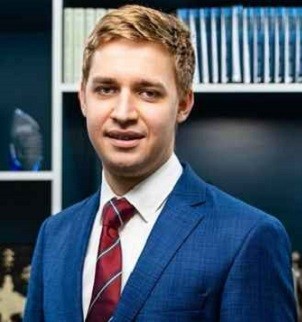Kristalina Georgieva, the Managing Director of the International Monetary Fund (IMF), described Dr. Nigel Clarke as "an exceptional public servant and policymaker."
I believe that he just follows orders implementing the IMF's ruthless austerity programme, which includes the growth of the Net International Reserves (NIR). The country has been in desperate need of basic infrastructure for years, but under the People's National Party and the Jamaica Labour Party, the NIR has grown from around US$1 billion in 2013 to now over US$5 billion.
Saving is important, but so is investing in the needs of the people. During his March 2024 budget presentation, Minister Clarke engaged in falsehoods to justify the austerity policy and failed to provide any tangible evidence to back up his claims or hypothesis.
Minister Clarke proclaimed: "We are proud of our commitment and successful efforts to build up our foreign exchange reserves to the highest level in history and to provide a buffer that serves the best interests of the people of Jamaica."
He then proceeded to explain why hoarding is in our best interest. "An adequate supply of foreign reserves is a signal to suppliers that Jamaica...that they'll get paid.
“Madam speaker, that came in useful during the C19 pandemic when we lost 4 billion USD of foreign exchange inflows like that!" Accentuated with a click of the fingers followed by a dramatic 3 second pause.
That was untrue. The fact is, the largest proportion of foreign exchange that enters the country is via remittances, and inflows were US$2.9 billion in 2020, and a record US$3.5 billion the following year.
The increase of the NIR to a then record US$4 billion was further evidence that his dramatic claim was false. He continued: "Tourism brings in 3-4 billion dollars a year, and we went down to zero [foreign exchange inflows], like that."
Delivered with another click of the fingers!
This was also untrue. Foreign exchange inflows did NOT fall to zero and tourism does NOT contribute US$3-4 billion to the economy.
The figures include monies paid to foreign hoteliers, etc. and this is referred to as tourism leakage. According to the minister of tourism, Jamaica retains 40 per cent of earnings, which equates to US$1.2-1.6 billion annually, and all of that money does not go to the treasury.
The foreign exchange inflows that the treasury directly receives is via taxation. There were record earnings of US$4.38 billion in 2023, but the direct tax contribution was only US$336 million, which was less than 8 per cent of earnings and less than 5 per cent of the budget.
So, his dramatic claim was another falsehood. As a concerned citizen, I tweeted the minister numerous times about accessing the reserves - he has since blocked me on X - and the following statement appeared to be his indirect response.
"Some people say, quite innocently that hey, we have all those reserves why don't we just tap into it and use them to spend. I understand the question, but Madame speaker, it is those reserves that underpin the Jamaican currency."
Firstly, I advocate for prudent investment, not spending and here is an example to illustrate the point. Minister Clarke thinks it is good management to spend US$50 million on a new parliament building when under US$40 million could take all 180 high schools off the grid and save around US$10 million every year.
There is a monumental difference between spending and investing. In regard to the reserves underpinning the currency, he inferred that stability is directly linked to the amount saved.
Well, the data he presented seemed to tell a different story. Whilst the NIR has grown from US$1 billion in 2013 to over US$5 billion, the exchange rate has depreciated from $99 to buy a buck, to $158.
So, the trend is the polar opposite. Applying the minister's logic, the JMD should have appreciated, but it has depreciated almost 60%.
He went on to ramble that if we accessed the reserves to invest, we'd think we're better off, but we wouldn't be because we'd have high inflation and we'd think we're benefiting but, ultimately, we wouldn't be, and it would make life more difficult. He should provide a detailed explanation of his hypothesis because the numbers indicate that investment would make us considerably better off.
Investment in renewable energy projects is sustainable and would create employment, deliver proper solid waste management, deliver better water service, better funded education and much more, with a positive impact on the treasury. Investment would benefit the economy, not jeopardise it as insinuated by minister Clarke.
Needless to say, is there anything to be proud of? Saving is important but so is investing, and in an attempt to try and justify the policy, minister Clarke peddled falsehoods and dabbled in speculation.
The Bank of Jamaica says that protection against inflation can be achieved by investment in real assets. Therefore, minister Clarke could have discontinued paying unreliable Jamaica Public Service Company well over US$100 million every year to power our infrastructure and invested in solar which pays for itself within 4 years.
The actions of minister Clarke are indicative of his commitment to the IMF, so it comes as no surprise that they have employed him. Some think he will be able to impact IMF decision making.
How? Racist South Africa was a founding member of the IMF and that should be a clear indication of the position of the organisation. Minister Clarke will simply be officially working for the IMF and receive a fat salary to reflect his promotion.
Dr. J. Lennon is an advocate for real change in Jamaica. His website is: LetsBuildaBetterJamaica.com.











